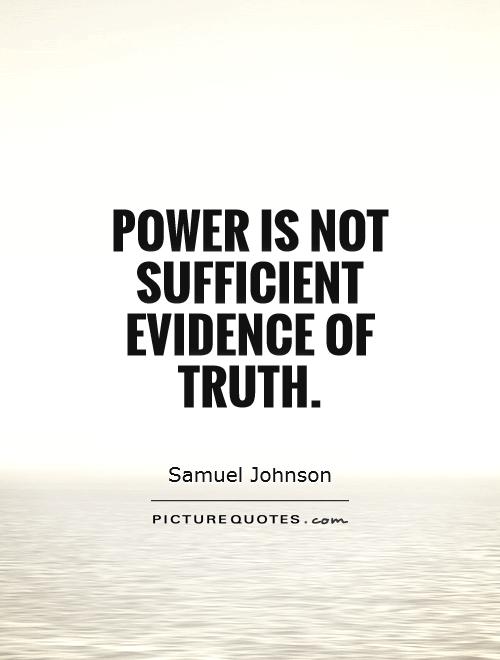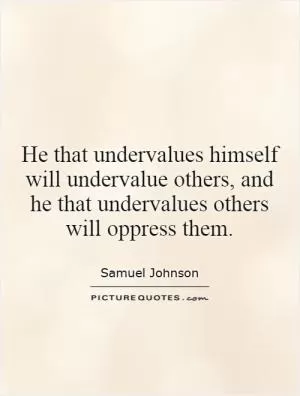Power is not sufficient evidence of truth

Power is not sufficient evidence of truth
Samuel Johnson, the renowned English writer and lexicographer, once famously said, "Power is not sufficient evidence of truth." This statement holds a profound truth that is still relevant in today's society. In a world where power often dictates what is considered true or false, Johnson's words serve as a reminder that truth should not be determined solely by those in positions of authority.Throughout history, we have seen numerous examples of how power has been used to manipulate the truth. Leaders, governments, and institutions have often used their influence to shape narratives that serve their own interests, even if they are not based on facts or evidence. In these cases, power becomes a tool to control what is perceived as true, rather than a means to uncover the actual truth.
Johnson's words also highlight the importance of critical thinking and skepticism when evaluating information. Just because someone holds a position of power does not automatically make their statements true. It is essential to question and analyze the evidence behind their claims, rather than blindly accepting them based on their authority.












 Friendship Quotes
Friendship Quotes Love Quotes
Love Quotes Life Quotes
Life Quotes Funny Quotes
Funny Quotes Motivational Quotes
Motivational Quotes Inspirational Quotes
Inspirational Quotes